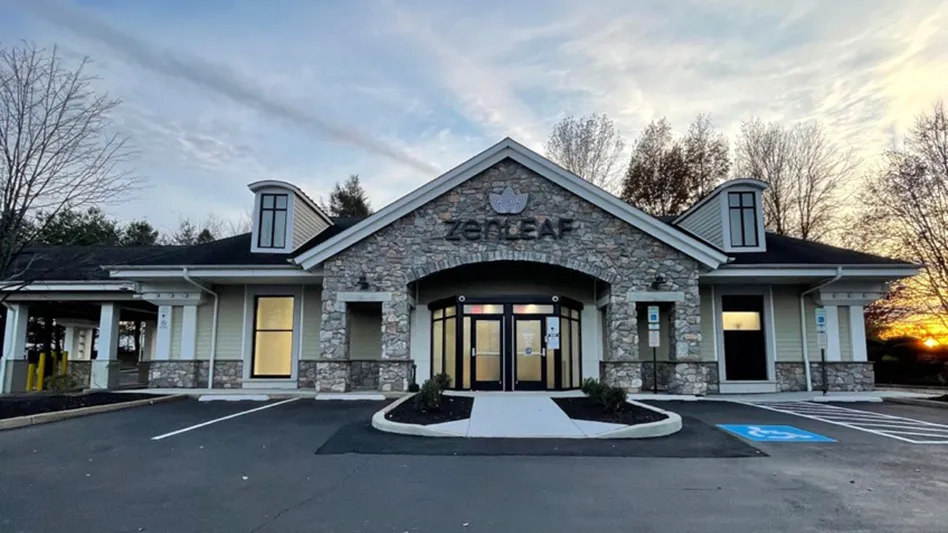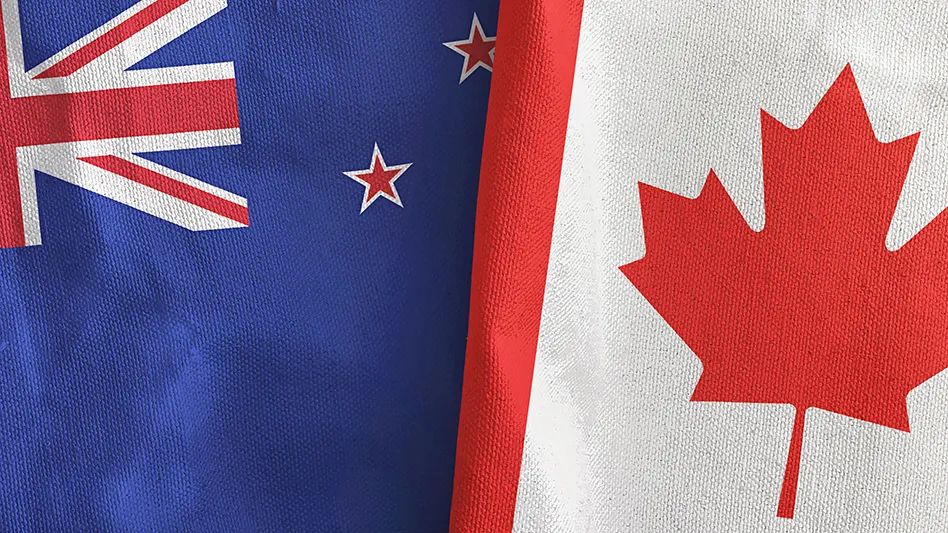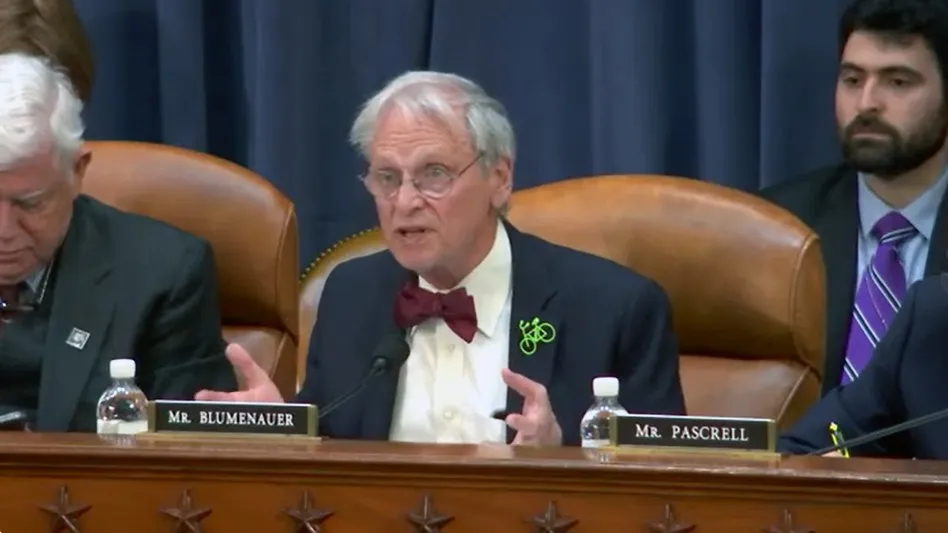
bourjart_20 | Adobe Stock
South Dakota voters have defeated an adult-use cannabis legalization measure with with 53% in opposition and 47% in favor, according to unofficial election results from the South Dakota Secretary of State, which show 99.85% of precincts reporting as of 5:45 a.m. CT / 6:45 a.m. ET on Wednesday.
South Dakota voters had a second chance to make their voices heard on adult-use cannabis legalization this election cycle, after the state’s Supreme Court struck down the adult-use initiative that passed in the 2020 election.
If passed, Initiated Measure 27 would have legalized the possession, use and distribution of up to 1 ounce of cannabis or 8 grams of concentrate for adults 21 and older. It would have also allowed adults to grow up to three cannabis plants at home, with no more than six plants allowed per private residence, but only in private residences located in jurisdictions where there are no licensed dispensaries.
Measure 27 did not set a foundation for a commercial adult-use cannabis cultivation or retail program; there was no mention of a regulatory authority, licensing system or taxation structure in the initiative. That was by design.
South Dakota made history in 2020 when voters approved medical and adult-use cannabis legalization on the same ballot.
The state’s first medical cannabis sales launched in July, but litigation ultimately overturned the adult-use measure, Amendment A, which was a constitutional amendment that aimed to legalize cannabis for adults 21 and older.
The lawsuit, brought by law enforcement and backed by Gov. Kristi Noem, challenged Amendment A on the grounds that it violated South Dakota’s one-subject rule and actually revised the state’s constitution rather than amended it.
A circuit judge struck down the measure in February 2021, and the South Dakota Supreme Court upheld the ruling in November 2021.
State lawmakers then attempted to restore the will of their constituents by considering an adult-use cannabis legalization bill during the 2022 legislative session, but the legislation ultimately stalled.
In the meantime, South Dakotans for Better Marijuana Laws (SDBML) collected the roughly 17,000 signatures required to get a new adult-use cannabis legalization measure before voters in the 2022 election.
Matthew Schweich, deputy director for both the Marijuana Policy Project (MPP) and SDBML, told Cannabis Business Times last month that Measure 27 was the “shortest, simplest, most cautious approach” to legalization.
“We commiserate with the people of South Dakota over the failure of this recent legalization initiative,” Travis Copenhaver, partner at cannabis law firm Vicente Sederberg LLP, said in a public statement. “It’s unfortunate that it did not succeed, and even more unfortunate that the matter was once again put to a vote after the success of 2020’s initiatives. This defeat is not the end, and we believe that South Dakota will soon join the ranks of states that have legalized cannabis.”
A statewide poll conducted in July by Mason-Dixon Polling & Strategy of Florida revealed that support for adult-use cannabis legalization in South Dakota may have waned since the 2020 election; the survey of 500 registered voters showed that 43.8% of respondents favored adult-use cannabis legalization, while 54.4% expressed opposition to the issue.
“It’s a disappointment that South Dakota has—once again—failed to legalize adult-use cannabis,” Jeffrey Zucker, vice chair of the MPP Board of Directors and president of cannabis-focused business strategy firm Green Lion Partners, said in a public statement. “If there’s anything that these past election cycles have proven, it’s that cannabis activists in South Dakota don’t give up easily. I maintain hope for an adult-use industry in South Dakota’s future, and I know activists in the state will continue to do all they can to make this happen.”
Meanwhile, Noem was up for re-election, running against Democrat Jamie Smith, who currently serves as the minority leader of the South Dakota House of Representatives.
Smith has indicated support for adult-use cannabis legalization, stating on his campaign website: “In South Dakota, the people rule. As governor, I will always seek to carry out the will of the people. We must acknowledge and carry out that decision, which means legalizing recreational cannabis rather than wasting taxpayer dollars on lawsuits. Legalization will also create thousands of potential new jobs and increase our annual GDP by more than $14 million.”
RELATED: Where Candidates Stand on Cannabis in All 36 Gubernatorial Races
As of 5:45 a.m. CT / 6:45 a.m. ET on Wednesday, unofficial election results from the Associated Press showed that Noem had won re-election, receiving 62% of the vote while Smith received 35.2% with 97% of precincts reporting.
Noem told KELOLAND News in September that she “absolutely” supports the will of the voters this time, now that the adult-use legalization measure has been revised.
“I do, I absolutely do,” she told the news outlet. “In fact, medical marijuana stood up and running just like they voted on the ballot. It’s my job to make sure everything that I do is constitutional. I took an oath to that.”
South Dakota was one of five states that had adult-use cannabis legalization measures on the ballot Tuesday; Maryland and Missouri passed their initiatives, while Arkansas and North Dakota joined South Dakota in defeat.
“This was another historic election for cannabis policy reform," said Mason Tvert, partner at national policy and public affairs firm VS Strategies, in a public statement. "Support for ending marijuana prohibition in the states is spreading much like it did at the end of alcohol prohibition. Voters in every part of the country are standing up and casting their ballots in support of legalizing and regulating cannabis for adult use. It is not only happening in the Northeast and in the West, but also in the Midwest. As we saw in Arkansas and the Dakotas, there is still work to be done. After decades of anti-cannabis laws and propaganda, it comes as little surprise that many voters have concerns. History has shown that the more people learn about the issue, the more likely they are to support legalization. It’s not really a question of whether these states will end cannabis prohibition, but a question of when."
Latest from Cannabis Business Times
- Cannabis Rescheduling: Where Do We Go From Here?
- Verano Opens MÜV Haines City, Company’s 75th Florida Dispensary
- Ascend Wellness Holdings Reports $142.4M Net Revenue for Q1 2024
- Trulieve Reports $298M in Revenue for 1st Quarter 2024
- SNDL Reports 1st Quarter 2024 Financial, Operational Results
- Leading Cannabis Brand STIIIZY Expands Retail Presence With Fresno Location Opening Saturday, May 11
- The Cannabist Co. Reports 1st Quarter 2024 Results
- Green Thumb Reports $276M Revenue for 1st Quarter 2024





